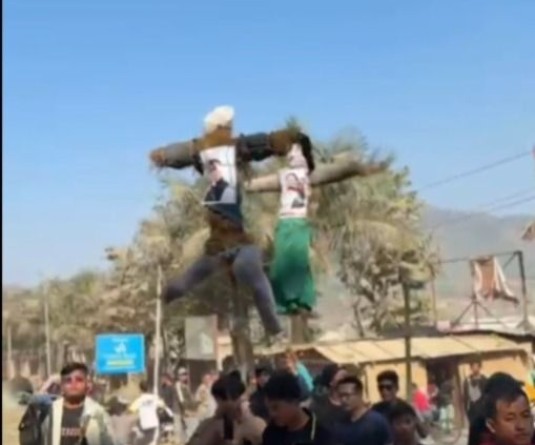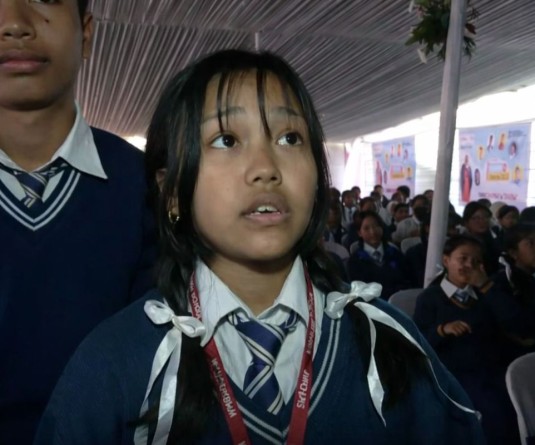IANS Photo

Imphal, November 4 (IANS) The Manipur government received a shot in the arm after the tribal Thadou community, who earlier asserted that it is not a part of Kuki community and has an independent entity from Kuki, supportd the demand of the implementation of National Register of Citizens (NRC) in the state to protect the indigenous people.
The BJP government and the majority of Meitei have been demanding the implementation of NRC in Manipur to curb illegal migrants from the neighbouring countries, especially from Myanmar.
After a two-day convention in Guwahati, the Thadou community said that in the convention it was resolved to support the NRC exercise if initiated by the government of India in the state of Manipur.
“We are of the view that the proposed exercise is aimed at securing Indian national interest and safeguarding the rights, welfare and interests of the citizens and indigenous communities.
We acknowledge the efforts of the state government in addressing the concerns of its citizens and ensuring their well-being,” said a statement of the Thadou Convention Guwahati Organizing Committee (TCGOC).
TCGOC Chairman Nehkholal Haokip and Secretary Mangminlal Sitthou in a joint declaration said that the proposed exercise is aimed at securing Indian nationals’ interest and safeguarding the rights, welfare and interests of the citizens and indigenous communities.
Demanding for successful implementation of the NRC and well-intended positive outcomes, government authorities concerned must address any apprehensions in relation to genuine concerns of the tribal people about permissible documents as proof of citizenship or permanent residency before the commencement of NRC in Manipur, the organisation said that given tribal people are usually prone to lacking proper documentation and records.
“This is to ensure no adverse effects and that no bona fide citizens of the state will be deprived of their citizenship and residency due to NRC.”
Supporting the Manipur government’s efforts against the drug menace, the danger of drugs affects all communities, and a campaign to fight against the menace is a necessity.
“We acknowledge the 'War on Drugs' campaign launched by the Manipur government. We urge the government to implement it more effectively with greater community engagement and better planning and a clear goal for the best socio-economic and environmental outcomes for now and the future,” the tribal group said.
According to the 2011 census, Thadou has a population of 2,15,913. The Any Kuki Tribes (AKT) had a population of 28,342 in Manipur in the latest census (2011), the first time Kuki was ever recorded in a census, the TCGOC said.
Amidst the ethnic hostilities between Meitei and Kuki-Zo, the tribal Thadou community in Manipur last week asserted that it is a distinct ethnic tribe with its own separate language, culture, traditions and great history.
“We are not part of the Kuki community but a separate, independent entity from Kuki,” said the Thadou community.
The Thadou community also called for peace and non-violent resolutions to the ethnic conflict in Manipur.
The tribal community announced that Thadou is one of the original 29 native/indigenous tribes of Manipur and they were recognised as independent Scheduled Tribes under the 1956 Presidential Order of the government of India.
The Thadou community urged the government, media, civil societies, academics, all other communities and international organisations, to correctly and respectfully identify Thadou as Thadou, with no prefix or suffix to it, to stop the imposition of Kuki or to refer to Thadous as Kuki, and to make the needed rectifications.
Of the three million population, Manipur has 33 recognised Scheduled Tribe (ST) communities while the majority Meiteis, who account for about 53 per cent of the state's population and live mostly in the Imphal Valley, have been demanding to recognise them as ST community.
The ethnic violence between the non-tribals Meiteis and tribal Kukis broke out in the northeastern state after a 'Tribal Solidarity March' was organised in the hill districts to protest against the Meitei community's demand for Scheduled Tribe (ST) status.


.jpg)


.jpg)
